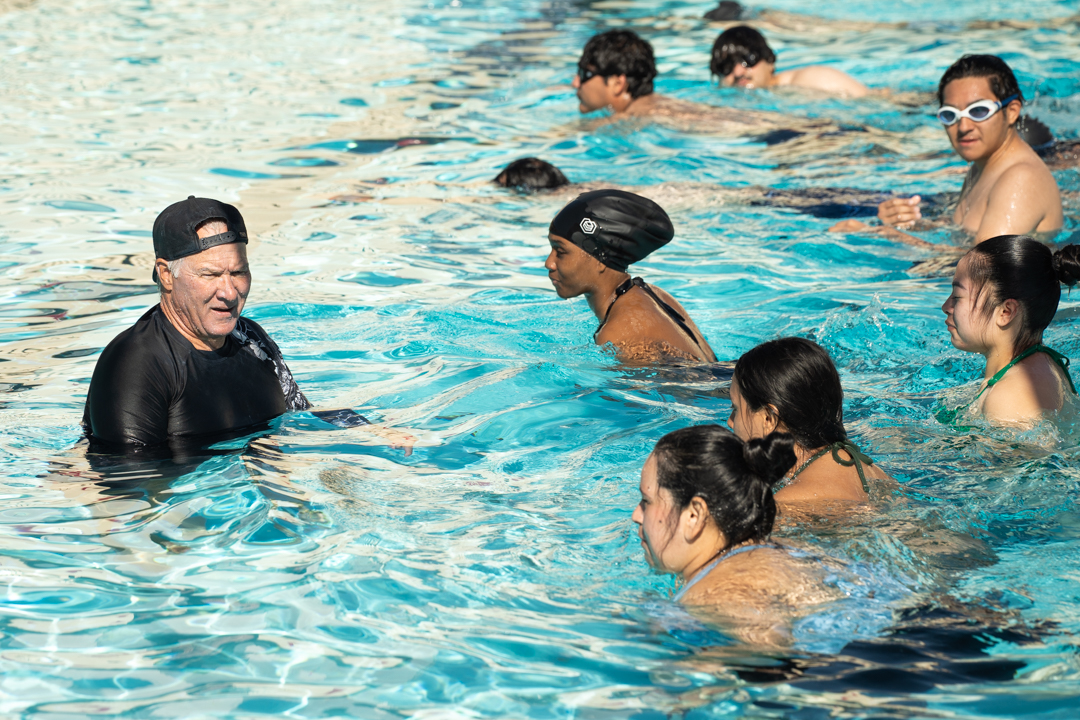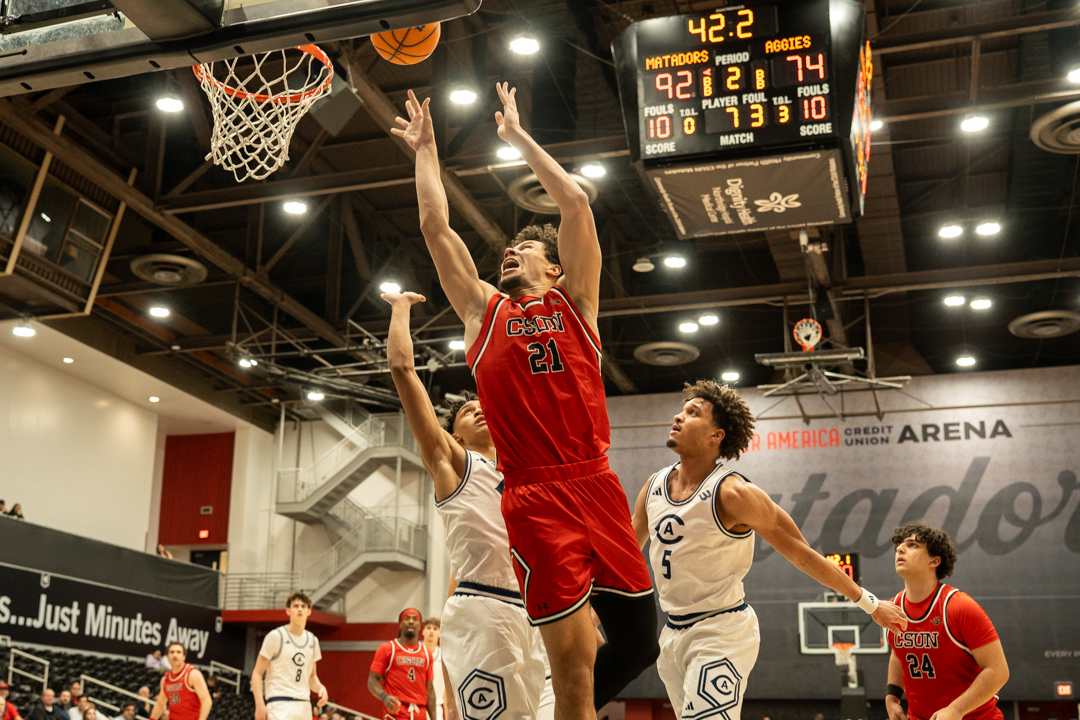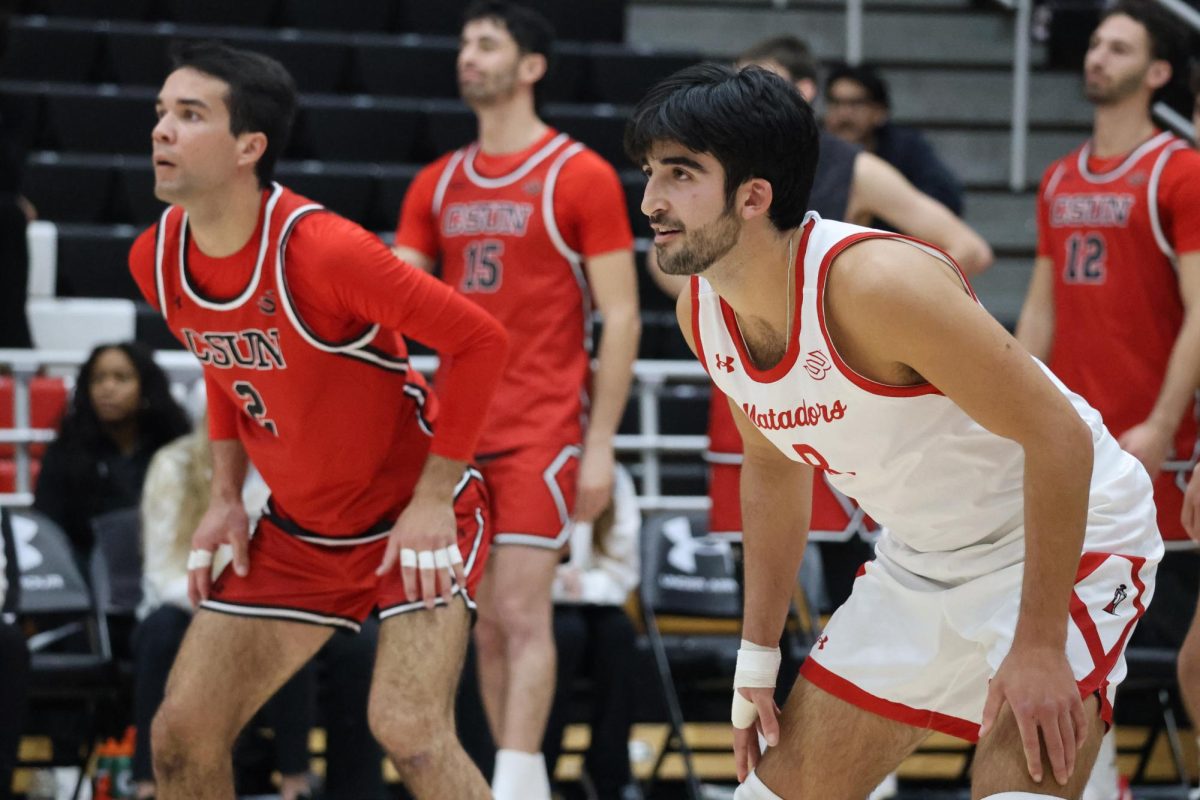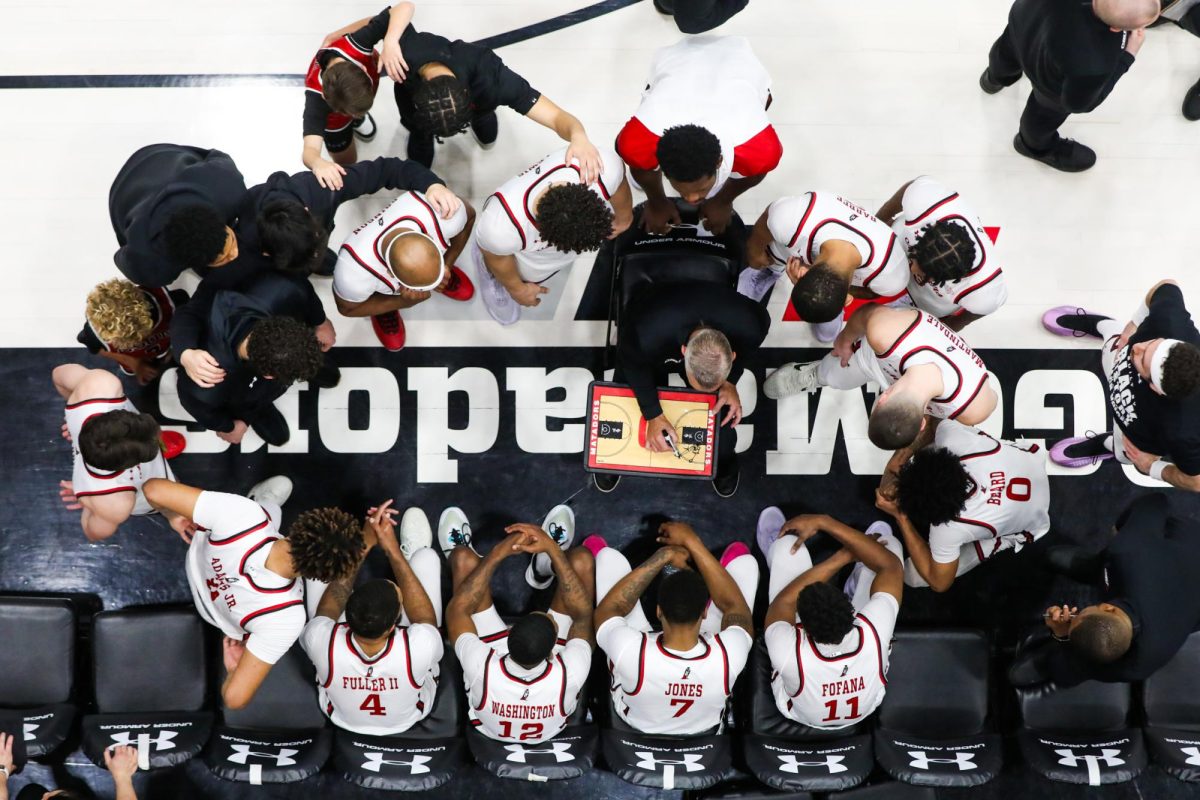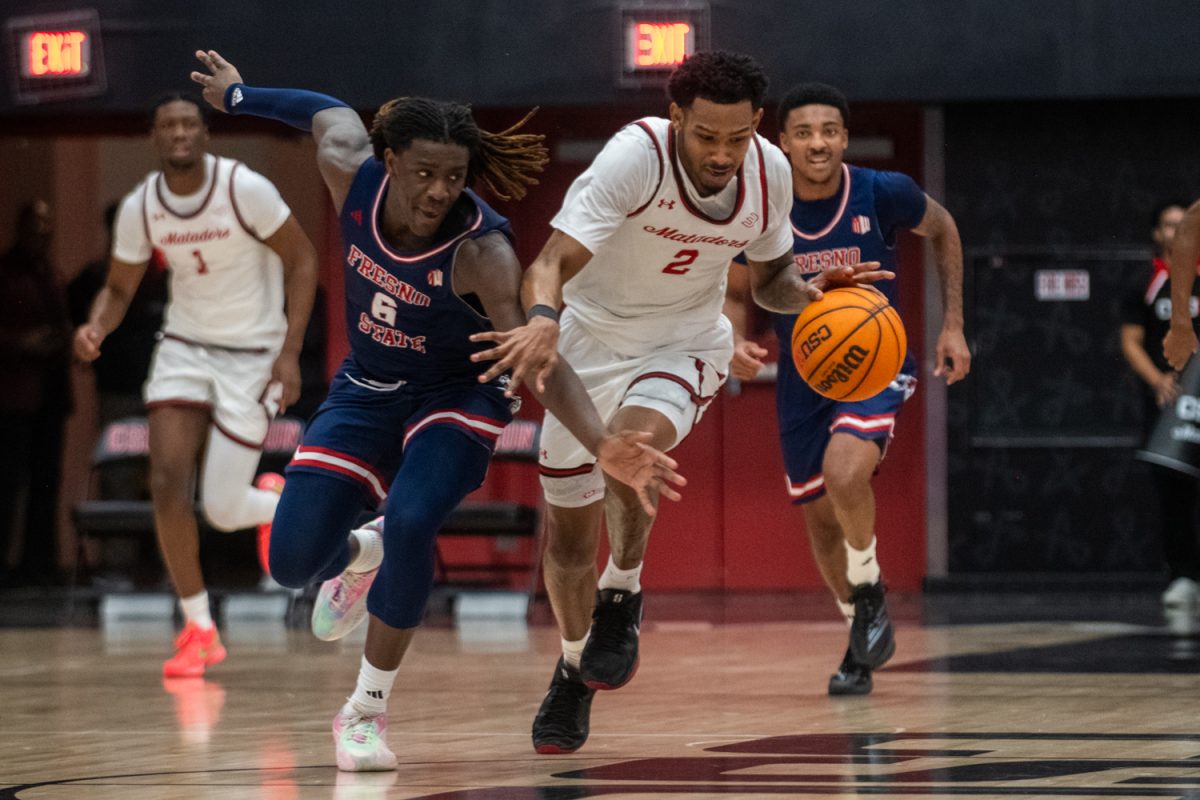
Anyone who has attended a collegiate volleyball match might notice that there is a player with a different color jersey among the six players for each team. He is the libero, a position that is much like an offensive lineman in football, and who do all the hard work and virtually get no recognition for it.
The Matadors’ libero is senior Ali’i Keohohou a three-year starter and the team captain on a team that was once No. 1 in the nation for three weeks.
“I always get that question, ‘Why do you always wear a different color jersey,’” Keohohou said. “For those people who come to our games and don’t really know the game of volleyball they will see that I stand out with my leadership.”
The term libero is Italian for “free” and on a volleyball team he is a player who specializes in defensive skills: they wear a contrasting jersey color as indication of their designated position and the special rules they must follow. For example, liberos cannot block or attack above the net like a hitter can.
“I pretty much need to make sure to get the setter a good pass so he can run our offense smoothly and getting digs because every time we get another chance to score a point it is easier for our team to win,” Keohohou said.
The NCAA introduced the libero position in 2002. The libero can replace any back-row player, without prior notice to the officials. Their replacements also does not count as a technical substitution, and the libero can only be =replaced by the player whom they replaced.
“Libero is one of the harder positions to play and they don’t get recognized because they don’t get the glory of getting kills but he gets some really big digs that turn games around,” fellow senior Kevin Mckniff said.
Furthermore, a libero is not allowed to serve, according to international rules, with the exception of the NCAA women’s volleyball games, where a 2004 rule change allows the libero to serve, but only in a specific rotation.
“Ali’i is the backbone of this team he shows up every night and comes in and plays hard and makes a lot of plays for us,” McKniff said. “He is always on the court with positive attitude and he is always encouraging the guys and getting on them when he needs to.”
Last season in match against New Jersey Institute of Technology Keohohou was able to serve in the third set after being replaced in the lineup by Kaleo Baxter.
“He always wants to serve and he never can because of the rules and whenever he gets a chance we are happy for him,” Jacek Ratajczak said.
Last season as a junior Keohohou appeared in all but one match finishing the season with a CSUN record 321 digs (2.92 dpg). For his efforts he earned Mountain Pacific Sports Federation honorable mention for the first time in his career. This season he began the season by being named team captain.
“He came through as our four year starter that has had a big impact both on the court and off the court as well,” head coach Jeff Campbell said on why Keohohou was named team captain. “He leads by example and he is a natural as a team captain.”
As the team gets ready to take on No. 8 Hawaii, Keohohou leads the team in digs with 176 an average of 2.75 per set after 17 matches.
The libero is commonly the shorter player on the team, and to be a team captain as libero is not something that is see in volleyball.
“There is something about him that just motivates the team,” senior middle blocker Ratajczak said. “His never-give-up attitude and compared to all of us he is so small physically but he is there for us emotionally and he always picks us up… he makes some plays that we wouldn’t expect anyone to make but Ali’i, and that brings up our energy.”
Keohohou didn’t just play volleyball in high school, he played basketball and baseball. During his sophomore year he asked his parents if he could try playing the libero position. In his junior year he went back to baseball and did not play volleyball but after missing it he asked his parents if he could stick with volleyball and they gave him the okay.
“I didn’t know the sport of volleyball a whole lot… I just knew that I was good at ball handling, good at passing and a good defensive player and that’s what you need to be a libero,” Keohohou said. “For someone who is new, it obviously takes a lot of hard work and extra time in the gym in perfecting those skills.”
Since Keohohou has been on the team the Matadors have received the school’s first national No. 1 ranking. For Keohohou any recognition he receives would be put a side for a chance at another first, the school’s first Division-I national title in any sport.
